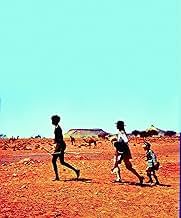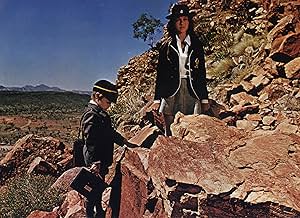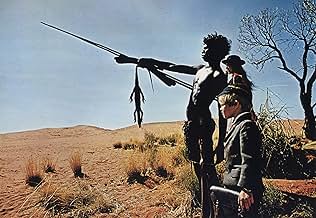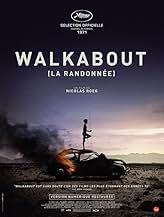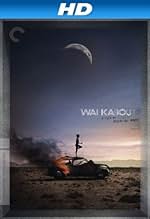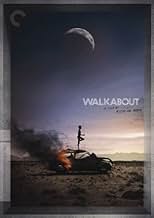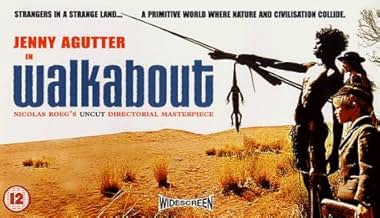Zwei in der Stadt aufgewachsene Geschwister sind im australischen Outback gestrandet, wo sie mit Hilfe eines Aborigine-Jungen auf seinem "Walkabout" das Überleben lernen: eine rituelle Trenn... Alles lesenZwei in der Stadt aufgewachsene Geschwister sind im australischen Outback gestrandet, wo sie mit Hilfe eines Aborigine-Jungen auf seinem "Walkabout" das Überleben lernen: eine rituelle Trennung von seinem Stamm.Zwei in der Stadt aufgewachsene Geschwister sind im australischen Outback gestrandet, wo sie mit Hilfe eines Aborigine-Jungen auf seinem "Walkabout" das Überleben lernen: eine rituelle Trennung von seinem Stamm.
- Regie
- Drehbuch
- Hauptbesetzung
- Auszeichnungen
- 1 Gewinn & 1 Nominierung insgesamt
- Black Boy
- (as David Gumpilil)
- Man
- (as Robert McDara)
- No Hoper
- (as Pete Carver)
- German Scientist
- (as Noelene Brown)
- Radio Announcer
- (Synchronisation)
- (Nicht genannt)
Empfohlene Bewertungen
On a less superficial level it is a film with a point-something along the lines of the graciousness of Aborigines and their ability to live in harsh surrounds, and the destructive nature of suburban life in a flat in a major city.
I think it would be a film, like Jedda, that will always be on reference for the Australian Outback, Aboriginals and the modern society which brought a European civilisation to their land.
Wusstest du schon
- WissenswertesLuc Roeg was actually sun-burnt in the scene where the aboriginal boy treats his back by rubbing him with fat from a wild boar. Director Nicolas Roeg thought it would make a good scene for the film so he picked up the camera and shot it.
- PatzerThe credits name the actor playing "Black Boy" as David Gumpilil. It should be David Gulpilil.
- Zitate
Narrator: [last lines - from "Poem XL" by A.E. Housman's "A Shropshire Lad"] Into my heart an air that kills, From yon far country blows: What are those blue remembered hills, What spires, what farms are those? That is the land of lost content, I see it shining plain, The happy highways where I went, And cannot come again.
- Crazy CreditsAfter the credits, there is a flash of white light on the screen and as it becomes a black screen, radio tuning is heard while the words "rien ne va plus" are shown.
- Alternative VersionenA director's cut of this movie was released in 1997 with 5 additional minutes. This cut is identical to the original British release version (100 minutes): the film was shortened by five minutes for its original American release.
- VerbindungenEdited into Terror Nullius (2018)
- SoundtracksElectronic Dance
Written and performed by Billy Mitchell
Top-Auswahl
Details
- Erscheinungsdatum
- Herkunftsländer
- Sprachen
- Auch bekannt als
- Encuentro de dos mundos
- Drehorte
- Produktionsfirmen
- Weitere beteiligte Unternehmen bei IMDbPro anzeigen
Box Office
- Budget
- 1.000.000 AU$ (geschätzt)
- Weltweiter Bruttoertrag
- 1.888 $


